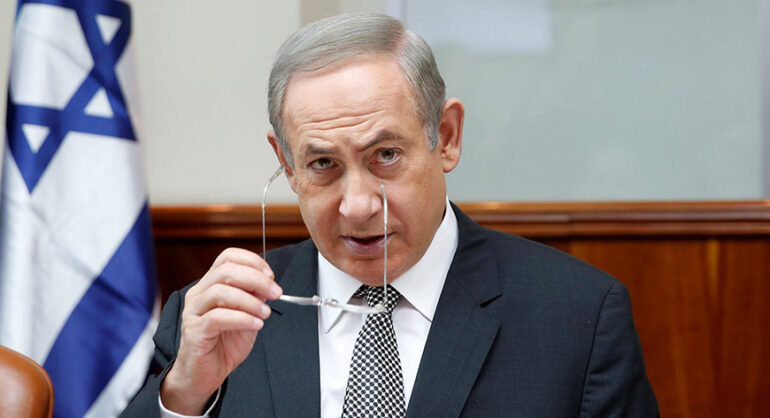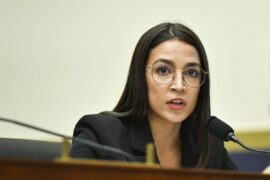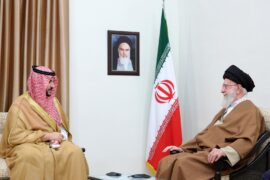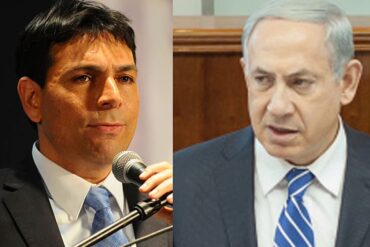Amos Yadlin, head of Tel Aviv University’s Institute for National Security Studies, warned this week that United States President Donald Trump will likely force his two-state plan on Prime Minister Binyamin Netanyahu (Likud) immediately following Israel’s upcoming elections.
“I think that Netanyahu, as an experienced statesman, understands that he is going to get the Trump plan not in the summer but immediately after the elections,” said Yadlin in an interview with Reshet Bet Sunday morning.
Yadlin, a former fellow at the Washington Institute for Near East Policy and long-time supporter of American plans to partition Israel into two separate states, said he expects the Trump administration to make efforts to influence what kind of government Netanyahu forms following elections on April 9th.
“I think the Americans have reached the conclusion – and this is an assessment, not a statement of fact – that they need to influence what kind of government will exist in Israel after the elections,” he said.
When questioned by his interviewer about the implication of his statement, Yadlin agreed that Trump’s team wants to see Netanyahu form a coalition with Benny Gantz, leader of the new “Israel Resilience” party.
Gantz, who is now running together with Yair Lapid’s Yesh Atid party, has been positioning himself as the candidate most likely to cooperate with Washington’s agenda to partition the country – a title was once held by Tzipi Livni, whose political career seems to have ended this week after dismal polling forced her to retire from Knesset.
But Livni didn’t go quietly. In an interview to Channel 13 News , she claimed that Netanyahu himself agreed to American demands to hold negotiations on the basis of uprooting Jewish communities in the West Bank.
“Netanyahu agreed during the negotiations with former Secretary of State John Kerry and former US President Barack Obama,” she reported.
“Not only agreed but drafted every letter in a document that says that the basis for negotiations will be the 1967 lines, with the necessary changes.”
It appears likely that Netanyahu plans to form a government with Gantz, as can be seen from his recent efforts to convince the newly reunited Bayit Yehudi and National Union factions to include the kahanist Otzma Yehudit party on their list for Knesset.
While Netanyahu’s urging the most nationalist parties to unite was understood by most analysts as being for the purpose of making sure no nationalist votes get wasted by small ideological parties not gaining enough support to pass the electoral threshold, the prime minister was most likely pushing for the inclusion of politically toxic kahanists on the national-religious ticket in order to make it easier for him to leave the entire block in opposition when forming his new government.
Despite promises of inclusion and ministerial portfolios for Bayit Yehudi leader Rabbi Rafi Peretz and National Union head Betzalel Smotrich if they agree to take the kahanistim on their list, Netanyahu likely understands that Trump expects his next coalition to accept American demands for partition, something neither Bayit Yehudi nor National Union would be able to accept.
Bonding them with Otzma Yehudit would likely taint them enough to legitimize their exclusion from the next government and pave the way for the prime minister to submit to Trump’s two-state demands.
Leaving nationalist parties in opposition is also a clever political tactic for Netanyahu, as it allows for new coalition options if his initial government falls apart. The threat of being able to form an alternative government with the Likud’s most natural partners can serve to keep Gantz and other coalition partners in line.
After resisting Netanyahu’s pressure for several days, Rabbi Peretz and Smotrich ultimately gave in, offering the kahanists the fifth and eighth slots on the unified list. Bayit Yehudi’s central committee approved the inclusion of the kahanists Wednesday night, despite senior party members making their aversion known.
While the Bayit Yehudi and National Union parties ultimately agreed to Netanyahu’s request to include Otzma Yehudit, the agreement includes a clause that could potentially prevent them from falling into the prime minister’s trap.
According to the agreement, the parties will separate and operate independently following elections, allowing Bayit Yehudi and National Union to enter the government while leaving Otzma Yehudit to make noise in the opposition.
“We have different world views,” Rabbi Peretz said. “I refused and refuse to unite with Otzma Yehudit. They are not part of our household, but I accept them as guests who want to enter our home for a short time.”
The question is whether or not the joint run will be enough for Netanyahu to taint the national-religious factions as too extreme to join his new coalition.





